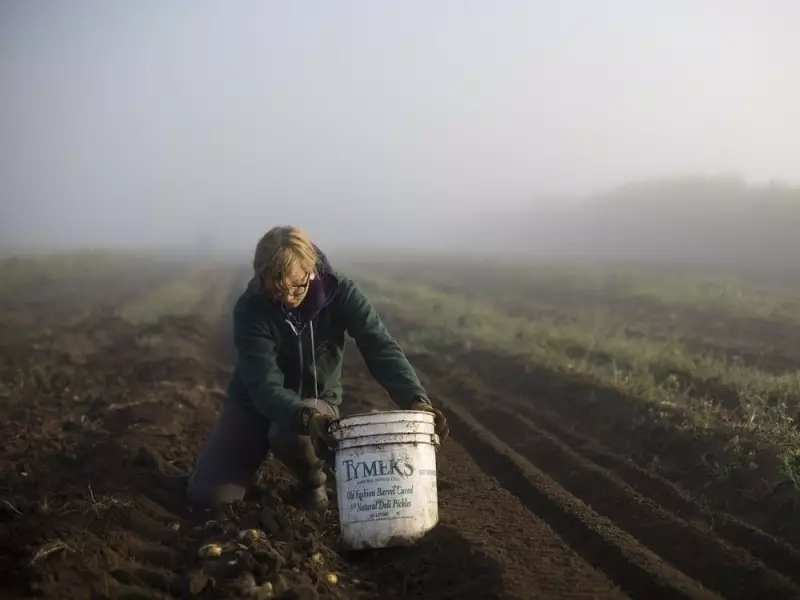
Southern Alberta's renowned potato fields are facing an unprecedented crisis as a brutal combination of extreme heat and destructive hail storms wreaks havoc on this year's harvest. Researchers at the Lethbridge Research and Development Centre are documenting what could be one of the most challenging growing seasons in recent memory for Alberta's vital potato industry.
The Perfect Storm of Weather Woes
This summer's agricultural nightmare began with prolonged heat waves that stressed potato plants during their critical growth phases. Just as farmers hoped for relief, severe hail storms swept across the region, physically battering crops and compounding the damage already done by excessive temperatures.
"We're seeing damage patterns that are quite unusual in both scale and intensity," reports Dr. Michele Konschuh, a horticulture researcher at the Lethbridge facility. "The combination of heat stress followed by hail impact has created conditions that even experienced growers haven't encountered before."
Research Reveals Alarming Damage Patterns
The research team in Lethbridge has been closely monitoring crop conditions across Southern Alberta, documenting everything from reduced tuber size to physical bruising and cracking caused by hail impacts. Their findings suggest yield reductions that could significantly impact both fresh market potatoes and those destined for processing.
What makes this situation particularly concerning is the timing. The extreme weather events struck during crucial development stages, meaning the damage goes beyond surface-level issues and could affect the entire growing season's productivity.
Economic Ripples Across Alberta's Agriculture Sector
Alberta's potato industry represents a substantial economic driver for the province, with Southern Alberta being one of Canada's most productive potato-growing regions. The crop damage observed this season could have far-reaching consequences:
- Potential price increases for consumers
- Reduced supply for processing plants
- Financial strain on farming operations
- Employment impacts throughout the supply chain
The research coming out of Lethbridge isn't just academic—it's providing critical data that helps farmers, industry stakeholders, and policymakers understand the scale of the challenge and plan accordingly.
Looking Ahead: Adaptation and Resilience
As climate patterns continue to shift, researchers emphasize the importance of developing more resilient agricultural practices and potato varieties. The extreme weather events of this season serve as a stark reminder that farming operations must adapt to increasingly volatile conditions.
"Understanding how different potato varieties respond to these stress factors helps us prepare for future growing seasons," Dr. Konschuh explains. "This research is crucial for developing strategies that can help Alberta's potato industry weather future storms—both literal and metaphorical."
While the full economic impact of this season's crop damage remains to be calculated, one thing is clear: Alberta's agricultural community faces significant challenges ahead as extreme weather events become more frequent and intense.





